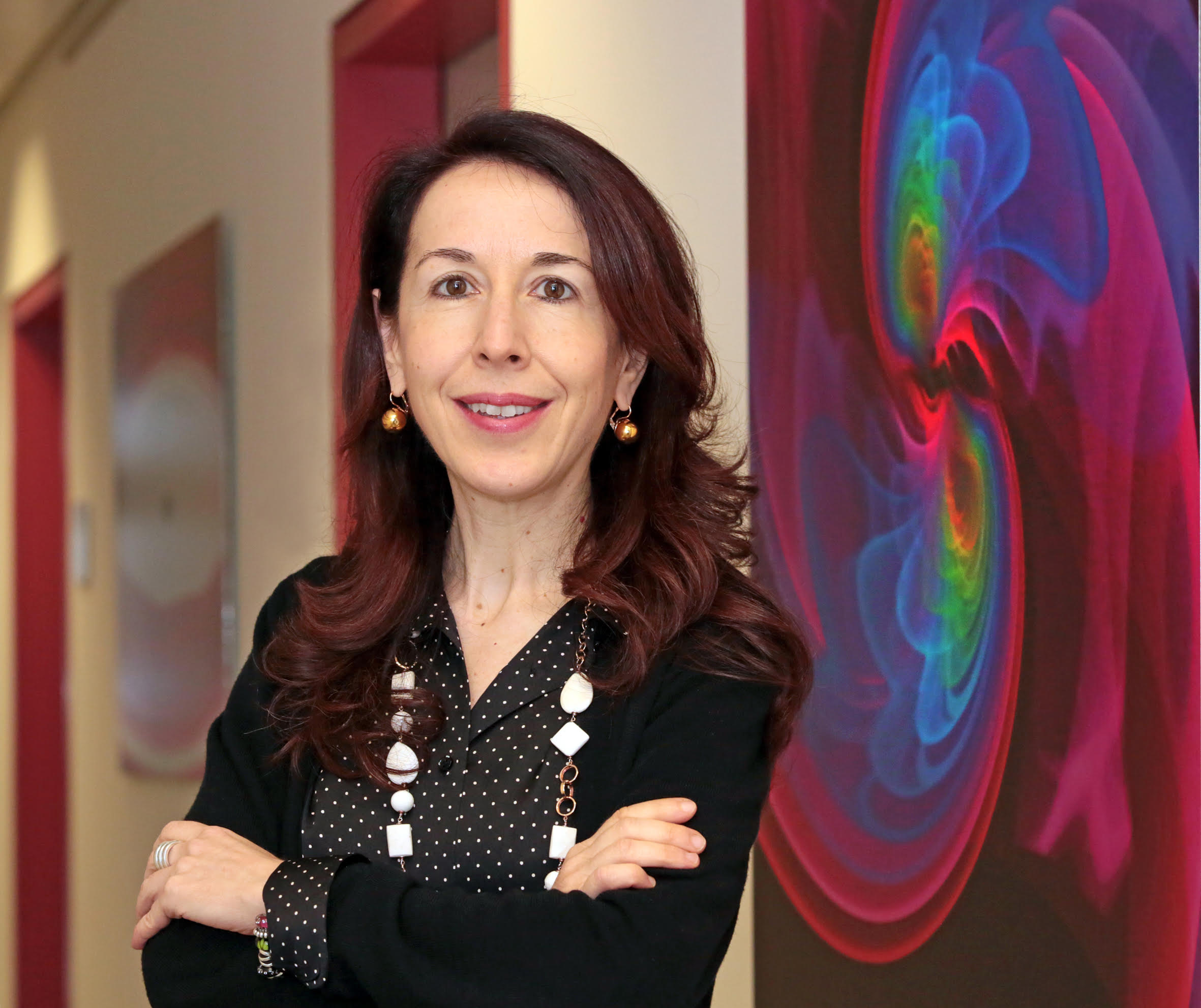Alessandra Buonanno has been awarded the Dirac Medal, along with Thibault Damour, Frans Pretorius, and Saul Teukolsky. The medal is given by the Abdus Salam International Centre for Theoretical Physics (ICTP), in Trieste, Italy, to honor significant contributions to theoretical physics. This year's recipients were cited for their work envisaging LIGO's detection of gravitational waves.
Buonanno is the director of the Astrophysical and Cosmological Relativity Department at the Max Planck Institute for Gravitational Physics (Albert Einstein Institute) in Potsdam and a Research Professor at the University of Maryland.
“It is a great honor for me to receive this prestigious award. It’s a wonderful recognition not only of my own research in gravitational waves, but of the work that the members of my research groups at the AEI and University of Maryland have done over many years,” Buonanno said.
She joined the UMD Department of Physics in 2005, and received an Alfred P. Sloan Foundation Fellowship and the Richard A. Ferrell Distinguished Faculty Fellowship. She is a Fellow of the American Physical Society and the International Society of General Relativity and Gravitation. In 2018, she received the Leibniz Prize, Germany's prestigious research award. Earlier in 2021, she was elected to the U.S. National Academy of Sciences and was awarded the Galileo Galilei Medal of the National Institute for Nuclear Physics (INFN).  Alessandra Buonanno © A. Klaer Buonanno was also recently elected to the German National Academy of Sciences Leopoldina, which originated in 1652 as a classical scholarly society.
Alessandra Buonanno © A. Klaer Buonanno was also recently elected to the German National Academy of Sciences Leopoldina, which originated in 1652 as a classical scholarly society.
Buonanno's research has spanned several topics in gravitational-wave theory, data-analysis and cosmology. She is a Principal Investigator of the LIGO Scientific Collaboration, and her waveform modeling of cosmological events has been crucial in the experiment’s many successes.
Buonanno, Charlie Misner, Peter Shawhan and others detailed UMD's contributions to gravitational studies in a 2016 forum, A Celebration of Gravitational Waves.